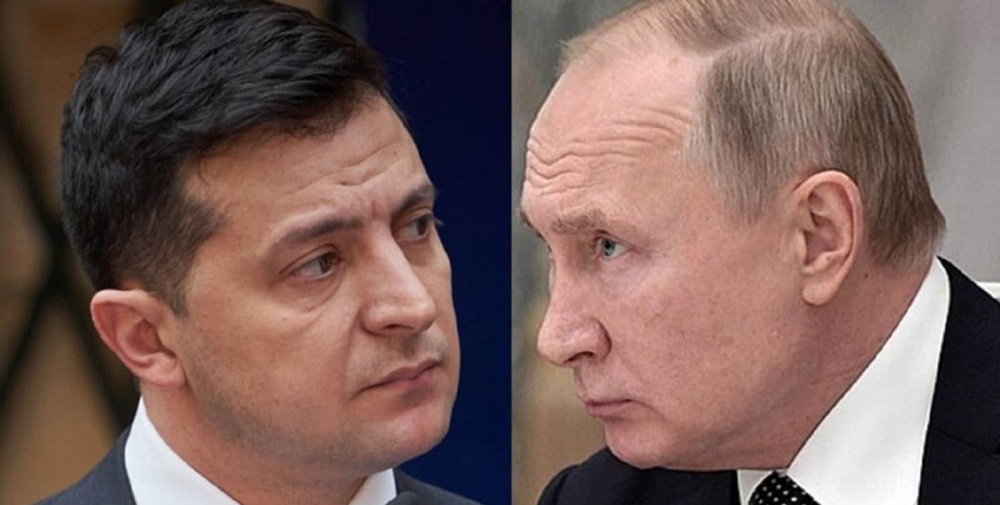Alwaght- It is yet unclear who sent the two drones that struck the Kremlin on Wednesday. There are some options: The Ukrainians who are working for Kiev from inside Russia, the pro-Ukraine and anti-Putin groups like those who last summer killed Darya Dugina, the daughter the nationalist figure in Putin’s orbit Alexander Dugin, or it was Putin himself designed a “false flag” attack as the West insists.
Currently, there is no certain answer to questions in this regard, but what we now so far is that the Russian narrative, given Moscow’s insistence that the White House planned and ordered this attack, can drastically change the strategic equations of war. In fact, now the most important aspect of the incident is not who sent the drone, but is what the Kremlin has taken of this attack and how it will react, something making the American officials rush to deny any role.
“I can assure you that there was no involvement by the United States. Whatever it was, it didn’t involve us,” National Security Council spokesperson John Kirby said on MSNBC.
Attempting to assassinate the political leaders of enemy is an issue that may seem like an obvious goal in wars, but in fact it is not, and such assassination always has important consequences, which must be done by carefully examining various aspects of the issue, especially the assassination of prominent leader of one of the world’s most powerful nuclear powers.
Here are three questions revolving around the plan to assassinate Putin. What were the planners of the attack’s predictions about possible Moscow reactions and the influences on the battleground developments? Have the plotters had an evaluation of the results of the failure of attack? What scenario emerges out of answers to these questions?
Does the war end with Putin elimination?
Certainly, the move to assassinate Putin, regardless of the US and Ukraine power for its implementation, should have made with foreseeing prospects of its influence on the Russian military campaign in Russia. The West and Ukraine at best may have thought that after Putin assassination, there will be a conflict between new leaders and the decision-making body about continuation of war and its strategic goals, and ultimately strained political conditions would have negative impacts on Russian war machine and its Moscow’s bargaining power on the negotiating table.
This imagination is way far from realistic because, in addition to the fact that most of the Russian political leaders and parties are currently in agreement with the general outlines of Putin’s strategy in Ukraine, even the polls published by the Western media show that the majority of Russians also support the war in Ukraine. For example, The Times in August 2022, referring to the results of the Levada Center poll, wrote that what does not seem to have changed is the Russian public opinion more than three-quarters of which support “special military operation” in Ukraine, and Putin’s popularity is 83 percent.
Therefore, it is clear that the issue of the war in Ukraine for the politicians, governing body and public opinion of Russia is a transpartisan and national issue and is not a personal decision, and even with Putin’s absence, there would be no signs of a deep political gap regarding the strategic goals of the war, and the military campaign will not be considerably undermined.
Increase of possibility of killing Zelensky
Another consequence of Putin assassination plan is a possible Russian reciprocal action and adding President Volodymyr Zelensky of Ukraine to the Russian hit list. Following the Wednesday attack, Dimitri Medvedev, the deputy head of Russian National Security Council, said Moscow may resort to Zelensky elimination.
“After today’s terrorist attack, there are no options left aside the physical elimination of Zelensky and his cabal,” said Medvedev.
This is despite the fact that the Russians had repeatedly announced that there was no decision to kill Zelensky, and even Naftali Bennett, the former Israeli prime minister, claimed in February that during his visit to Moscow at the beginning of the Ukraine war, Putin assured him that despite knowing Volodymyr Zelensky’s whereabouts, Moscow had no plan to take him out.
But the new development causes Zelensky to travel with great caution inside the country or even decide to spend more time outside it.
Stepping up Russian strikes and deepening of Ukrainian division
Another consequence of the attack on Kremlin is bringing wider parts of Ukraine, and even outside it, under fire. Only a day after the attack, the Russians launched a heavy offensive on Ukraine military and economic infrastructure and said more is coming in next days and weeks. This comes as destruction of infrastructure and high human tolls have already unleashed discontentment and criticism against the policies of Kiev government and Western countries that still reject peace initiative despite having no prospects of defeating Russia. Public criticism of the Western governments that put the high costs of war on their taxpayers is even making an instrument to opposition parties to promise more realistic policies to end the war if they rise to power.
Indeed, now that the raw attempt of Putin assassination was foiled and Russia has been given an excuse to step up its strikes, discontentment with Zelensky especially inside the military will increase and so will the scenarios to remove him from power.
Possible scenario
The top scenario that singles itself out among others is that the White House strategists, holding intelligence assessments about Kiev incapability of defeating Moscow in the war, would seek ways to trade the reality of an overwhelming Russian win on the battleground with a Moscow imagination of a cheap victory on the political ground. Under such a process, specifically Zelensky’s removal from power can both damage Russian image on the world stage and untie the peace negotiations twist.



























